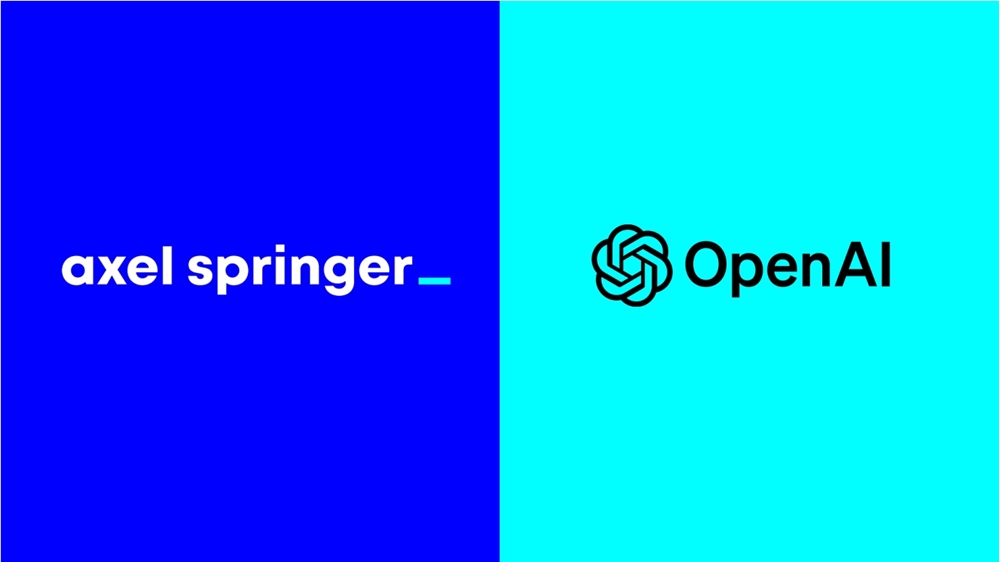Last week, Axel Springer (the German media group that owns Politico and Business Insider)Signed a "multi-year licensing agreement" worth tens of millions of euros.

Image courtesy of Axel Springer
According to the company, the agreement will “beup to dateandauthorityAxel Springer's report will also be used for training. OpenAI Model.
On the surface, this kind of partnership arrangement may seem familiar. Over the past decade or so, social media companies and more traditional media companies have tried dozens of technology and media partnership models with mixed results. This is not a new type of partnership between OpenAI and media organizations.firstAgreement: Earlier this year, the Associated Press (AP) had partnered with the company. However,Axel Springer's agreement is the most comprehensive to date and may provide a template for more similar collaborations in the future.
While past experience makes it easy to view such agreements as part of a general trend toward AI dominance, these agreements should give companies like OpenAI a more complex view of the story of inevitability. In fact, these partnerships may help explain the usefulness of large language models (LLMs) and also provide some plausibility for the widespread lawsuits filed against AI companies over the past year.
In other words, Axel Springer’s agreement — similar to OpenAI’s agreement with AP, or its cancellation agreement with Twitter —This enabled OpenAI to train its models to create the modern style of content included in the Axel Springer portfolio: straight news in German and English; magazine features; breaking news, investigative reporting, and blog posts on a variety of topics; as well as news on US politics and a lot of insider news. The next GPT model will be better at imitating this type of content.If OpenAI or its commercial clients have ambitions to automate journalism—for example, by feeding AI toolsup to datecoverage to contextualize, or provide stories to summarize—this agreement could make that prospect more feasible.If executives at companies like Axel Springer imagine that they might want to use OpenAI software to reduce labor costs — and increase productivity — then this could be a step in that direction..
The real value of the deal may be ensuring that its future products don’t exist solely in a vacuum of their own creation..
Some of OpenAI’s main competitors, in addition to having access to large amounts of training data generated by their users, also have access to real-time or at leastup to dateUpdated information and media about the world and its customers: Google owns much of the web through its search engine, not to mention Gmail, Docs, and YouTube; Meta owns Instagram and Facebook; and Elon Musk's xAI owns X.
OpenAI products, like their competitors, have access to the Internet, which means that all kinds of related andup to datecontent, including news.But as AI companies become more powerful, businesses that own websites — including news publishers — are becoming more strategic about how they serve up their content.In October this year, BBC Taking steps to prevent OpenAI from crawling its content, joining the ranks of The New York Times, CNN and Reuters.
OpenAI’s deal with publishers is a hedge against one scenario,That is, a scenario where crawling becomes more difficult and legally risky, training materials become more expensive, and real-time data becomes scarcer — in this scenario, paying ChatGPT users might ask for news, and ChatGPT might not have access to credibleup to dateSources are linked, summarized or otherwise communicated.
in other words,The Axel Springer deal is actually a fairly specific prediction of the challenges OpenAI thinks it might face in the coming years, and the opportunities it sees in the journalism space.
But the deal also raises another question: What if the web is being harvested by companies that only reward spam, and companies like Axel Springer are destined to become wire services for automated news aggregators?If OpenAI hopes to capture and automate the profitable part of news distribution, as its social platform “partners” did before it, while leaving the expensive, difficult, and risky part of media production to its partners — should big media companies demand more?